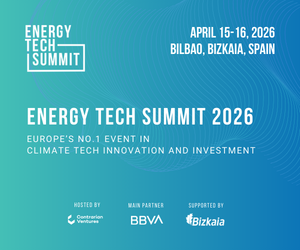Search - Search on Articles, Blogs & Tags
Total Results : 23
USA EPA to allow power plant construction before obtaining clean air permits
- 2025-09-10 06:40:45
- David Flin
The US Environmental Protection Agency (EPA) has proposed new measures to speed up construction of power plants to support the power demands of data centres for AI, enabling companies to start construction before obtaining clean air permits.
Powering the future: transforming energy, utilities, and resources in 2025
- 2025-02-11 16:07:03
- Junior Isles
With the challenges of climate change and geopolitical turmoil, this is a crucial time for the energy sector. So what will be the key challenges this year?
by Carol Johnston, VP Energy, Utilities, Resources, IFS
G7 JETP plans hit global snags
- 2024-09-25 06:24:06
- David Flin
The Just Energy Transition Partnership (JTP), a G7-backed funding initiative to help developing nations cut carbon emissions has hit a number of snags around the world.
COP28: More loopholes than a butterfly net
- 2023-12-14 07:33:44
- David Flin
The agreement reached at COP28 was, in some ways, a milestone, in that for the first time for nearly 30 years, specific mention of fossil fuels has been made.
Stand-off continuing at COP28 over phase-out of fossil fuel use
- 2023-12-13 07:14:52
- David Flin
The COP28 talks have been the first to directly mention fossil fuel usage in a global climate agreement. However, countries have been wrangling over the text of this agreement.
Preparing electric utility operators for the effects of climate change
- 2023-09-20 18:30:53
- Junior Isles
Many electric utility operators are already taking measures to establish resilient networks capable of withstanding the impacts of climate change. Research indicates that every dollar invested in building resilient infrastructure saves six dollars in future repair costs, making it a beneficial long-term investment. So what are the key steps utilities can take?
Adrian McNulty, VP Utility Solutions, IQGeo
Investing towards net zero
- 2022-09-21 16:58:11
- Junior Isles
To achieve net zero, significant, concerted, coordinated and balanced investment is a critical must-have.
By Jonathan Hick, Investment Director at Triple Point Investment Management, and fund manager of the Triple Point Energy Transition plc – TENT
Measure better, or better measures? ONS launches quarterly climate reporting
- 2022-08-05 15:44:15
- Junior Isles
The British government has confirmed its commitment to integrating nature into economic and fiscal decision-making, but progress is slow. A significant step in this regard was recently taken with publishing of the first set of quarterly greenhouse gas emissions and environmental statistics.
By Alistair Taylor, Trainee Solicitor at Browne Jacobson
Tackling the climate emergency requires a reassessment of the UK climate strategy
- 2022-05-20 12:09:42
- Junior Isles
While the UK has already announced initiatives aimed at combatting climate change, it needs to do more. There needs to be increased focus on creating solutions that will help the country play its part in lowering global carbon emissions, while navigating the energy crisis.
By Simon Daniel, Founder, Moixa
OECD agrees to end export credit for unabated coal-fired power plants
- 2021-10-27 07:04:50.525301
- David Flin
The Organisation for Economic Cooperation and Development (OECD) has announced it will end export credit support for unabated coal-fired power plants.












